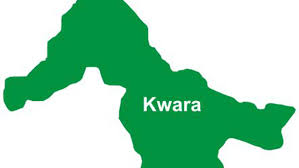With barely a year to the end of the first term of the President Muhammadu Buhari administration and six months away from the 2019 general elections, the issue of the inconclusive appointment of chairmen and board members of government agencies still remains subject of intense criticism in the media circles drawing opprobrium from politicians, academics, lawyers, columnists and public affairs commentators.
Most critics faulted the unnecessary delay in the reconstitution of the boards which till date continues to be done piecemeal without regard to the sensitivity of the smooth running of government.
For instance, the Code of Conduct Bureau (CCB), Fiscal Responsibility Commission (FRC), Revenue Mobilisation Allocation and Fiscal Commission (RMAFC), Federal Character Commission and Federal Civil Service Commission are important institutions that play catalytic role in the nation’s socioeconomic and political development.
Other critical institutions include the EFCC, PenCom, ICPC, National Lottery Regulatory Commission (NLRC), and Federal Roads Maintenance Agency (FERMA), Corporate Affairs Commission (CAC), Infrastructure Concession Regulatory Commission (ICRC), National Institute for Policy and Strategic Studies (NIPSS), National Power Training Institute of Nigeria (NAPTIN), CBN, NDIC, CAC, SEC, etc.
Some of these institutions until recently have been without boards.
Acting chairmen and acting secretaries some of whom come from the same geo-political zones have been holding forte even without quorum as most of them have fewer members left.
The implication of this is that some of the decisions taken at plenary sessions without the required quorum might be considered ultra vires and subject of litigation in future.
As important as their mandates are, especially the stabilizing role they play in ensuring the continued existence of Nigeria as a corporate entity, such agencies should not be left to exist without having their boards properly constituted.
Many of these federal agencies that have been without substantive heads and statutory boards are known to play catalytic role in the various sectors of the country’s economy including finance, anti-corruption, governance, infrastructural development, agriculture, science and technology.
These boards are responsible for setting out broad economic, financial, operational administrative guidelines and targets for their various agencies.
They are also concerned with policy issues, monitoring of institutional projects, programmes and ensuring that the parastatal’ mandates are realised.
Pundits also decry a situation whereby ministers are saddled with additional responsibilities of supervising parastatal without governing boards which exert undue pressure on them and create unnecessary acrimony and labour unrest thus distracting the ministers from carrying out their primary duties.
This probably explains the recent faceoff between the APC Chair Adams Oshiomhole and Dr.
Chris Ngige Minister of Labour and Productivity over the non-inauguration of NSITF board.
Another area of concern is the fact that some of the executive bodies, which are yet to have their boards properly constituted, have very few members who are coincidently from the same geo-political zone left on board which does not reflect federal character, confidence, equity, national unity and cohesion.
Public officers appointed to head agencies on acting capacity have limited financial and administrative powers.
Their decisions on many matters require the approval of the supervising minister of the affected agency.
This affects the machinery of government as the implementation of time-bound policies and programmes is subjected to undue administrative delays.
The situation is further worsened if such agencies are left without governing boards.
It is instructive that with a few months to the general elections, the attention of government and the political class will now be shifted from governance to winning elections at all levels.
It is thus pertinent to call on President Buhari to as a matter of urgent national importance address all issues pertaining to appointments before the commencement of electioneering to enable chief executives and board members settle down in their new offices.
When all nominations are sent to the National Assembly, it is left for the legislators to do the needful as the President concentrates on successfully completing his tenure and facing reelections with little distractions.
Some of the outstanding appointments already announced but yet to be submitted for Senate confirmation include that of Engr.
Elias Mbam as the chairman, RMAFC, who is yet to be screened more than two years after his reappointment in June, 2016; Funso Doherty, DG PenCom, Prof.
James Momoh, Chairman NERC, NBET, etc.
The drama surrounding the Senate screening of Ibrahim Magu, acting chairman of EFCC, the controversial assumption of office of the newly appointed but unconfirmed D-G Lottery Commission, Mr.
Adolphus Joe Ekpe, DG of the Lottery Commission, and a host of others, are still fresh in the memory of Nigerians.
This is why members of the civil society, the media and the academia as well as concerned citizens have been voicing their fears and consternation at the inertia of government, especially at this critical juncture of the nation’s development.
This unnecessary delay is giving rise to avoidable criticism and dangerous speculations.
The implication of non-conclusion of these appointments has led to the inability of these departments and agencies of government to carry out their statutory functions effectively.
Consequently, these agencies are not able to key in into the policies and programmes under the change mantra of the present administration.
Some policy matters cannot be handled in the absence of substantive chief executives and board members.
It is high time this government got its acts right by doing the needful so as to soothe frayed nerves and oil the machinery of government for quick delivery of democracy dividends.
To this end, the Senate is enjoined to expedite action on the screening of all outstanding nominees submitted by the President while the Presidency should without further delay submit all outstanding nominees to the Senate for necessary legislative actions.
In the same vein, those that have been screened and confirmed by the Senate should be made to assume duty as soon as possible.
This certainly would reduce the tension in the polity and help to lubricate the engine of government.
In the final analysis, the Senate and the Presidency should amicably resolve their long-standing cold war to allow for prompt and smooth running of government machinery.
President Buhari should take the lead by initiating confidence-building measures that will restore amity between the two arms of government, because as an Executive President the buck stops on his table.
Hassan writes from Bayero University, Kano
Blueprint gives you the latest Nigerian news in one place. Read the news behind the news on burning National issues, Kannywood, Videos and the Military



